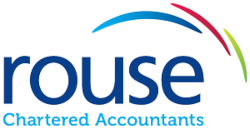It’s a process that bypasses the banks and has grown from £zero to £800m per annum in just 4 years as a result of the banks’ cut backs in small business loans.
If you aren’t too sure how it works exactly, here is an introduction to help you understand how it could be of use to you.
So what is Crowdfunding?
Crowdfunding is an auction process that invites bids from ‘crowds’ of private investors to assist a business with its working capital requirements.
Several types of crowdfunding are currently available including loans, cash advances against single invoices, and pre-revenue equity.
Types of crowdfunding
There are three broad categories
- Loans – Unsecured loans, which banks very rarely offer these days, are available to established businesses that are in reasonably good shape financially. From £10,000 to £200,000 over terms between 6 and 60 months, you must show two years accounts with a turnover of over £50k. Interest rates about 9%, director’s guarantees required, but no charges over the business or its assets. The loans can be for any business purpose and take about 14 days to arrange. Common applications include shop / restaurant refits, deposits for a commercial mortgage, stock finance, funding business expansion, compensating for a bad debt, paying off a bank overdraft, meeting an unexpected tax demand and equipment purchases.
- Equity investment – Shares in the ownership of the business are purchased by investors who are then entitled to shares of the firm’s assets.
- Reward based cash advances – Reward based funding, whereby people give money in return for a gift of some kind, is largely for creative, arts, and ‘social good’ projects. The biggest funder is Kickstarter, but there are dozens of small specialist platforms that support, for example, writing and publishing a book , local micro businesses or staging a new play.
The first two are dominated by a handful of major providers such as Funding Circle and Funding Knight, for loans Crowd Cube and Seedrs for equity investment.
The loan crowd funders are mostly regulated this year and endorsed by the Government. As an example of how quickly the sector is growing, Funding Circle now process well over £22m of small loans per month. A year ago it was £8m per month.
Typical process for getting crowdfunded
- The borrower and the loan required are profiled on the Funder’s website.
- Private individuals bid usually between £20 and £200 at a time, occasionally a lot more. The bid will include the rate of interest the lender expects in return.
- The bids offering the keenest rates of interest win the auction process.
- The Crowd Funder consolidates all these small loans into one loan agreement over a term of between 6 months and 5 years. A recent £30k loan, for example, comprised 92 bids from 41 individual investors.
A real life crowdfunding example
1. Background
- HN is a family business that offered a cosmetic service from their original Slough salon.
- This did so well that they opened two more salons in early 2011. This year (2012) they plan a fourth salon, for which they need a £60K loan.
- However their April 2011 accounts were weakened by including the latest salons’ launch costs but were too early to show any significant revenue from them.
- Unsurprisingly, their bank would not lend without more security and their home mortgagor would not lend to them for business purposes.
2. Applying for funding
- HN has traded for more than 12 months, a pre-requisite demanded by Funding Circle (FC), the original provider of unsecured business loans via crowdfunding.
- FC’s interactive website allows us to establish immediately a company’s eligibility for a loan. An Experian credit score of at least 30+ is required.
- In this case ’the computer said no’ but it was clear that the April 2012 accounts would show much better results.
- Once they were filed, they waited until Experian had updated their file.
- This time the submission to FC was accepted and the accounts were immediately sent to FC along with the 8 page application for a 3 year £60k loan.
3. The Auction process
- Every application is first reviewed by FC’s credit team. If they don’t think it will be 100% funded by investors, they decline to auction it. They agreed to launch HN for the full £60k with a credit rating of ‘C’ ( they grade borrowers from A+ to C- so that potential lenders can assess their risk/return).
- The auction is open for 7 days, during which progress can be monitored in real time, via FC’s website.
- If a person plans to lend say, £1000 they don’t usually tender the full £1000 immediately.
- They bid perhaps £100 at 9.50% and then watch what others are bidding, rather like on e-Bay. A day later they offer £200 at 10.00%, two days later another £250 at 9.60%, and so on.
- Once they can forecast confidently the interest rate that they must bid to succeed, they pile in and the auction can move from 50% to 100% funded in a matter of hours.
- The auction logs every bid until the £60,000 total is reached. Thereafter each bid that offers a lower interest rate than the highest already accepted, replaces that higher bid.
- In this way the customer obtains the optimum rate of interest. NH’s loan was fully funded by day 4 at an overall 11.1%. Leaving the auction open for the final three days resulted in the rate falling to 9.2%.
4. Completion and Payment
- On completion of the auction, NH were sent a summary of the loan showing the amount they were to receive, monthly payment, interest rate, and any conditions.
- The amount received is the loan funded less FC’s arrangement fee of 3% for a 3 year loan.
- Director’s guarantee required – it is an unsecured loan, no charges over assets or the company.
- If the borrower is comfortable with the offer, FC send him the formal loan agreement.
- Once this is signed and accepted, FC pay the loan immediately via BACS.
- Just 12 days, from submission of the application to the funds being in NH’s bank account.
Contact us
We have a good relationship with a specialist advisory firm who help businesses through the crowdfunding application process, from start to finish.
If you are interested in discussing crowdfunding further please contact us and we will put you in touch with our specialist advisor.

Award-winning chartered accountants offering tax, audit and advisory services.


